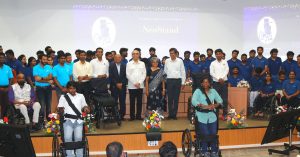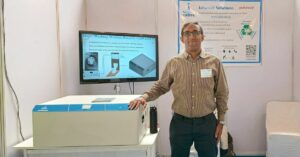Ahmedabad Startup Develops AI Robot That Segregates 5 Tonnes of Waste In An Hour
This AI-based device can increase India’s recycling rate, which currently stands at 30 per cent, and prevent health risks among ragpickers.

Every piece of plastic ever made still exists and may continue to do so for the next 500 years if we do not reduce its usage.
Of course, recycling is the first option that governments across the world are turning to, but what about a country like India with a recycling rate of merely 30 per cent?
India, with a population of 1.3 billion, generates around 62 million tonnes of annual waste, as per the Ministry of Environment, Forest and Climate Change.
However, only 43 million tonnes is collected, of which 11.9 million is treated, and the rest is dumped into landfills or oceans.
In case you are wondering about the volume, the untreated waste is equivalent to three million trucks!
Meanwhile, the recycling industry has its own share of challenges, foremost being the working conditions of ragpickers. Thousands of ragpickers across India earn their livelihoods by collecting, sorting, segregating and selling dry waste like plastic, paper, glass, etc.
What’s worrisome about this profession is the lack of health safety measures while sorting. Since they do it manually, they often come in direct contact with hazardous waste such as syringes, sanitary napkins and so on.
To address the twin problems of recycling more waste and curbing the health risks of ragpickers, Ahmedabad-based startup, Ishitva Robotic Systems (IRS), has come up with technology-driven solutions.
Named as ‘Sanjivani’, artificial intelligence, machine learning (ML) an IoT-enabled device automatically sorts or segregates waste that can be recycled.
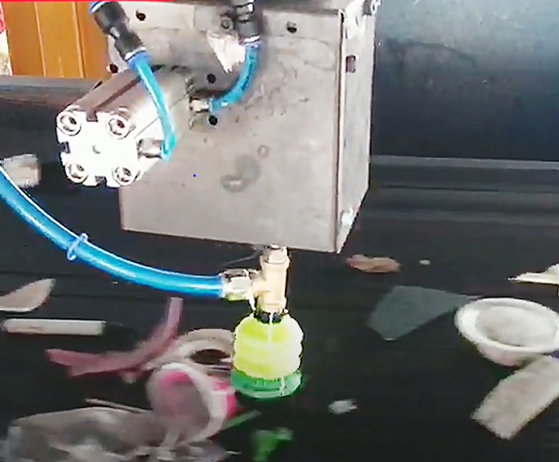
“Sorting is a dangerous job, especially now when a global pandemic is looming. We provide a simple, scalable, and affordable solution for sorting of high volumes of waste with quality. Sanjivani automatically segregates waste into multiple bins or chambers based on polymer type and brand without human intervention. The system has a modular design, and therefore, is suitable for smaller as well as larger towns,” Jitesh Dadlani, founder of IRS, tells The Better India.
In other words, if 7-8 people can segregate one tonne of dry waste in 8-10 hours as per their recycling value, Sanjivani can do five tonnes in an hour, without posing any health risks.
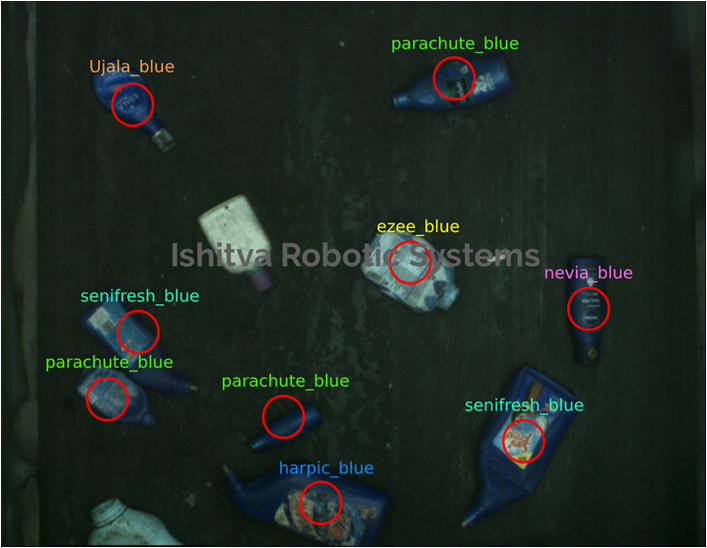
The robot can differentiate between dry waste and sort them into categories of recyclables and non-recyclables.
Ishitva’s smart waste management solution is specially designed for Materials Recovery Facilities (MRF). It is a specialised plant that receives, separates, and prepares recyclable materials for marketing to end-user manufacturers.
“The goal is to create a circular economy where manufacturers are motivated to collect and recycle waste into a new product. For example, a waste shampoo bottle can be recycled into a new bottle,” adds Sandip Singh, CEO of the company.
Features of The AI-Tool
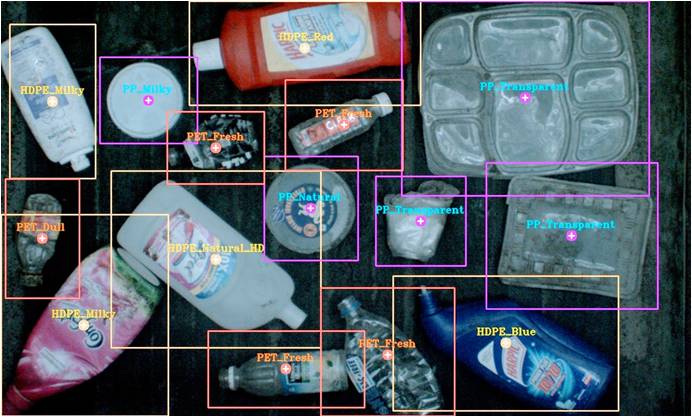
Sanjivani comprises three sub-set products– NETRA, YUTA, and SUKA.
NETRA (AI-Powered Vision) is a self-learning computer that comes with industrial cameras, sensors, and neural networks that learn about waste by grabbing images and detecting recyclables on the conveyors.
“This platform is already trained with more than two million images. With the use of fast and high accuracy models, the platform quickly classifies the recyclables flowing on to the conveyor belt and sends precise instructions to the Air Sorter/Robot system,” explains Dadlani.
Meanwhile, YUTA, an AI-powered robotic sorting machine, uses NETRA’s vision system to lift and segregate the recyclables on a high-speed conveyor belt. Likewise, SUKA, a modular sorting machine, uses air for pneumatic sorting.
The company has already installed its solutions in commercial MRF plants. As for the price range, it depends on the size of the sorting plant and the volume of waste being segregated.
How Ishitva Started
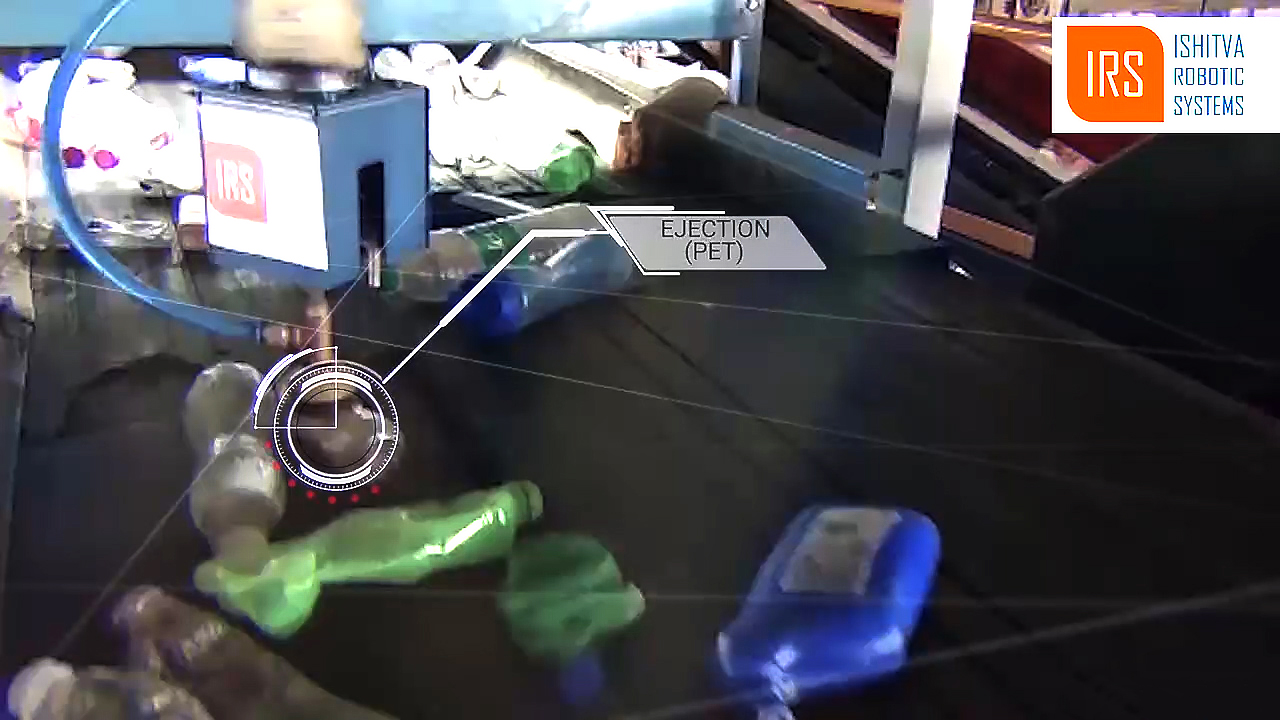
After completing his Masters in Computer Applications, Dadlani worked with multinational companies like Tata Consultancy Services and Commerical Bank of Dubai for over a decade before entering the sustainable field.
Being a software engineer, Dadlani’s interest lay in developing technology and innovation-based products. However, due to work commitments, he could not pursue that calling.
Finally, in 2017, he quit his lucrative job to explore the scope of artificial intelligence. This was around the time when he got back in touch with his school friend, Sandeep Patel, who was experimenting with the smart-bin technology.
“It was while designing smart bins that I came across the massive problem of sorting. I discovered how India’s waste collection rate had increased but the recycling rate was stagnant. That meant more garbage heaps on landfills. On further research, I got to know that recycling was low because the sorting was not done effectively. I started working on a solution and, that’s how Ishitva was born,” shares Dadlani.
What caught his attention was knowledge that several types of plastic items, like milk pouches or shampoo bottles, could be recycled more than eight times.
“We need to remember that every virgin plastic is made from petroleum, which is a finite resource. Thus, recycling is a sure shot way to avoid resource depletion,” adds Dadlani.
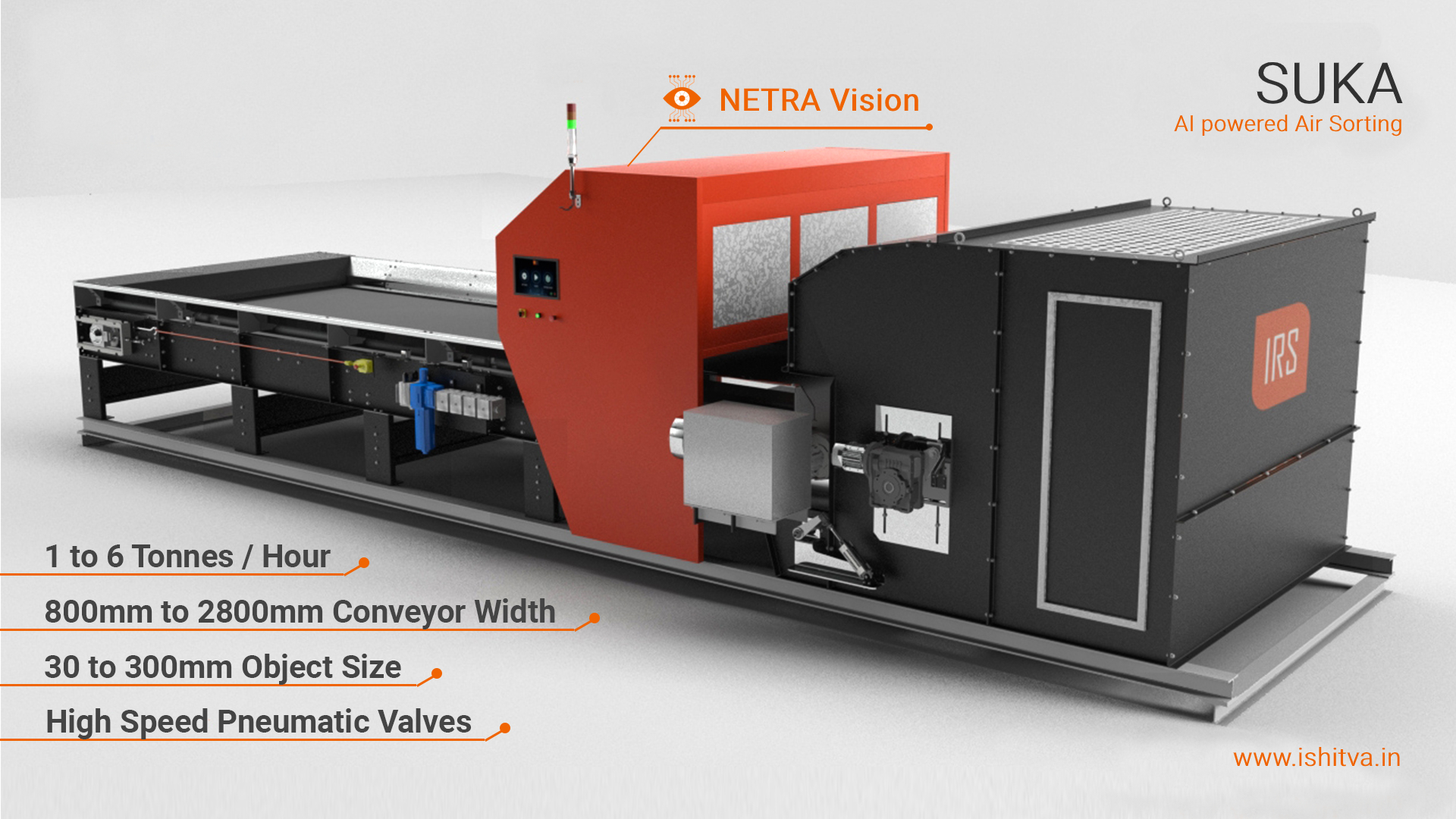
Besides, the benefits of recycling and the health risks of ragpickers also encouraged Dadlani to develop Sanjivani.
In 2018, he raised seed funding from his mentor and angel investor, Sandeep Patel, and officially registered Ishitva.
In the last two years, the company has grown to a team of 15 members. Last year, the company also won NASSCOM Foundation’s ‘Tech For Good’ award.
Dadlani, Singh, and their team hope to scale their venture and roll out the smart system in several cities across India.
“We love what we do and the potential it has to be a gamechanger in the waste management industry. Due to the lockdown, our activities have slowed down, but we do have a couple of software and projects in the pipeline,” Dadlani signs off.
Get in touch with Ishitva at www.ishitva.in or click here.
(Edited by Shruti Singhal)
Like this story? Or have something to share?
Write to us: [email protected]
Connect with us on Facebook and Twitter.
This story made me
-
97
-
121
-
89
-
167
Tell Us More
We bring stories straight from the heart of India, to inspire millions and create a wave of impact. Our positive movement is growing bigger everyday, and we would love for you to join it.
Please contribute whatever you can, every little penny helps our team in bringing you more stories that support dreams and spread hope.






